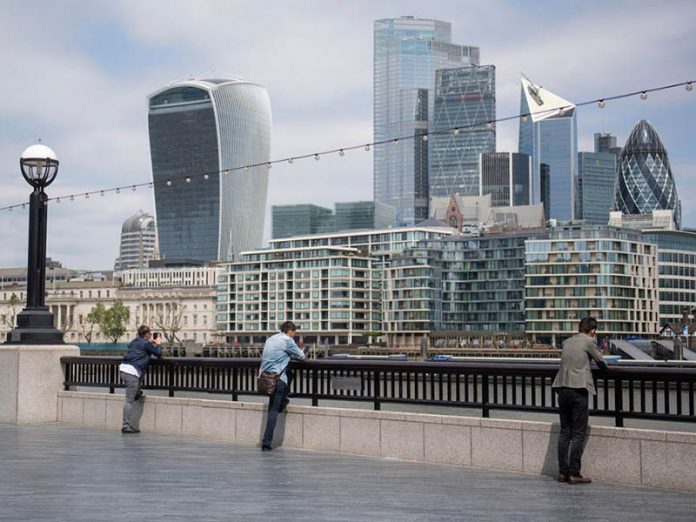By Beth Hampson
March 2021 marked the one-year anniversary of lockdown in the UK, which, for many of us, also marks a year of working from home. The positives of our ‘new normal’ are clear – for some, saving on public transport costs five days a week has been a welcome perk, while others are able to benefit from more time with loved ones. However, this month alone, we have seen business leaders, in their droves, begin to shed light on the long-term effects of remote working.
Howard Dawber, head of strategy at Canary Wharf Group, told BBC Radio 4’s Today Programme that people are missing office and city-centre life, and working from home fatigue has firmly set in. In his words, “now people are really missing that opportunity to collaborate with and just see their friends in the office, to get your hair cut, to go and get a good coffee at lunchtime, and to do all the life admin things you can do in a city centre.” Similarly, Goldman Sachs boss David Soloman strongly rejected remote working as the new normal, going as far as to call it an “aberration” that is opposed to his company’s innovative culture.
There has been a workplace revolution afoot since March 2020, and we are at a crucial juncture. As businesses plan their route out of lockdown, it is time to reflect on what we have learnt and have honest discussions about how working from home is really affecting our workforce, its culture and, perhaps most importantly, the next generation of business leaders.
Of course, we cannot simply turn back the clock and return to pre-pandemic working models. However, recent headlines of businesses cutting down on office space do not tell the whole picture; many companies still view bricks and mortar as vital for the attraction, development and retention of talent. In fact, after a year of lockdown, the attraction of London seems to hold even more gravitas as a status symbol for some industries.
Business growth
Let’s first consider business growth. If companies are looking to expand their businesses, then research shows that maintaining a base in an urban city gives them the upper hand. A report by Northwestern University found that young businesses thrive best in cities with a minimum population of 1.2 million. Clearly, being part of an urban hub provides a young or fast-growth business with the conditions, connections and centrality it needs to truly flourish.
What’s more, this has been supported by interviews we’ve conducted amongst our client base in London. Many business leaders recognise the need for a city location in order to legitimise their young businesses. One of our customers Michael Schmitz – who co-founded an innovative and fast-growing investment company, Emerald Capital Management, at the beginning of 2020 – said, “having an HQ in the city is vital for the credibility of our young business. I just don’t think that, in our industry, a firm with an office in a residential area carries the same weight. Investors, clients and partners need to be able to see that you are part of the metropolis.”
Similarly, another customer of ours, Guy Davis, Managing Partner at boutique litigation firm Davis Woolfe, advised fast-growing companies not to ditch their office space too quickly because of the importance it holds for a growing business’ brand and for fostering a company culture. “Ultimately, in our trade, we need a prestigious city address to demonstrate to the market that we mean business. Clients want to come in and kick the tyres.” Interestingly, although Davis is re-developing the firm’s website this year to ensure the business continues to have a competitive digital offering, he also remains committed to expanding the firm’s bricks and mortar in Mayfair. He relayed that “we entered the first lockdown with just one office in Bank; we’re exiting the third lockdown with an additional space in Mayfair. As we continue to enlarge our team, we’re also keen to expand our office presence in the West End. Although harnessing technology is great and undoubtably required in a digital word, it cannot replace traditional, human interaction.”
Team development
These proclamations of commitment to London will be sweet relief to those patiently awaiting their return to the city, which, according to a YouGov survey, is 39% of workers who never want to work from home again.
Consider these ‘workers’ for a moment. How has 12 months of working largely in isolation affected their career trajectories? Many professionals have struggled to progress as quickly as they might otherwise have done whilst working from home – whether it’s graduates in their formative years, those attempting to make the jump to management, or even senior professionals forging their way in a new business. It’s hard to deny that experience is picked up just from being around peers – hearing how they conduct themselves on the phone; seeing first-hand how complex situations are handled; and enjoying the opportunity to quickly share insights and tips.
Again, speaking with Michael Schmitz revealed that returning to the office is critical for his team’s development. He said, “a physical space where my team can meet and work together is crucial – it allows us to better integrate new recruits and enables them to hit the ground running as soon as they join.” Once the ‘stay at home’ advice is lifted, Schmitz plans to regroup his business in the office, and is not alone in that sentiment.
Davis had a similar experience with his young law firm, saying “the Government’s ‘work from home’ message did affect our new recruit who could no longer learn from other members of the team by observing them on phone calls and in meetings.” Davis noted that, despite the benefits of regular Zoom calls, time in the office has proved indispensable for helping new team members learn the ropes. Additionally, he said “having two central London offices means that, for a firm orientated around group working on complex cases and meeting with clients, we are in a prime spot for everyone to come together easily”.
Despite the digital strides that the working world has made since the first lockdown, when it comes to getting a handle on a new job, bonding with teammates and having the ability to discuss ideas, no technology can compare. Eagerly watching and learning from your colleagues in action is an in-office sport.
A hybrid future
Taking stock one year on, we are left with some key takeaways: home working clearly has its benefits, but going it alone full-time is also not sustainable, for both personal and business growth. As such, as we emerge from this third and hopefully final lockdown, we expect most companies to adapt to a hybrid working model in which employees can seamlessly alternate between home and office working.
Despite the odds, the world of work has adapted and evolved this year and, between various national lockdowns, we have proved that businesses can transition between office and home, and productivity does not have to suffer as a result. Many businesses are also making the move to offices that are ‘one-stop-shop’ destinations to incentivise workers back to cities and create bustling commercial hubs for skill-sharing post-lockdown. Just like the retail sector, office spaces are now expected to offer a more holistic experience to their employees. On-site bars and terraces are becoming commonplace with the additions of wellness options like yoga classes.
Finally, for Davis it is very clear that flexibility is key for his team when returning to the office. He says, “after this year, my advice to fast-growing businesses is don’t make any long-term decisions. Remain nimble. That’s what we will be doing – ensuring our team can come into the office, but also retaining the benefits of working from home when they want to.”
Holistic growth
Perhaps one of the key lessons to be learnt from lockdown is that business and personal growth are fundamentally intertwined. Growing your own skillset alongside a team and a business whilst your company is scattered between home offices across the country is tricky. We must come back together, once safe to do so, to get the leadership generation of 2030 back on its feet.
About the Author

Beth Hampson is Commercial Director at The Argyll Club, a leading provider of premium flexible workspaces in London with 38 locations and 8,000+ members. She is also a rising female star in London’s predominantly male-dominated property scene, climbing the career ladder rapidly to reach Directorship at just 26 years old.



























